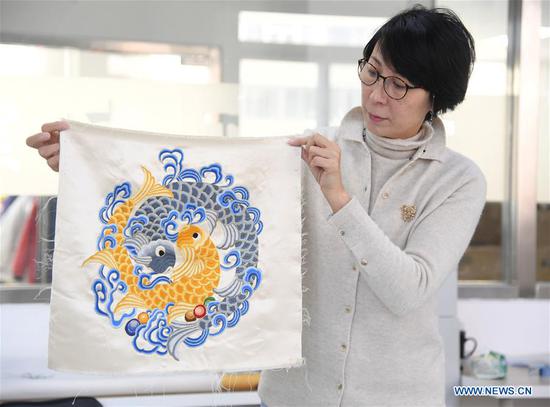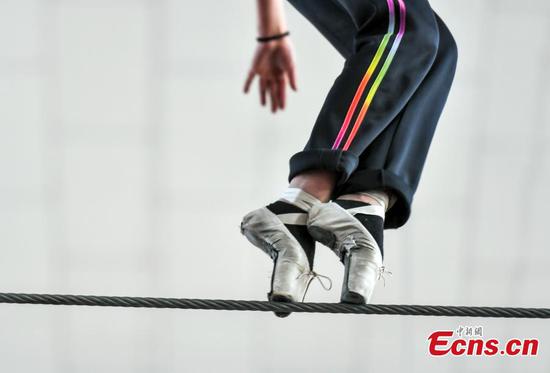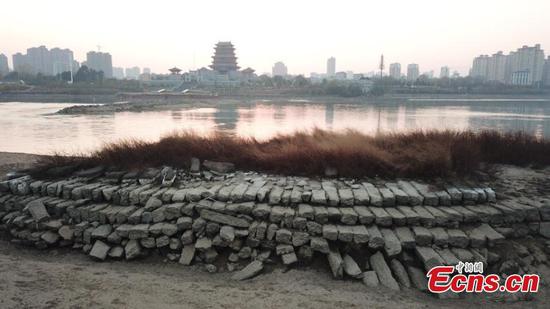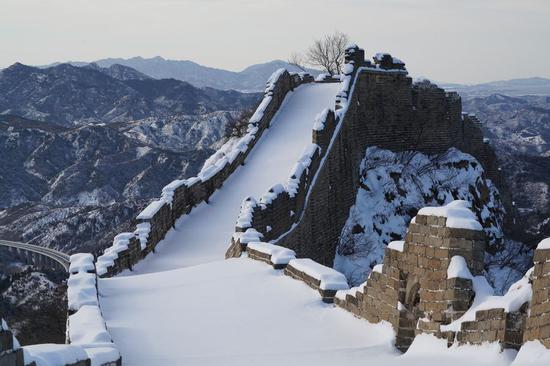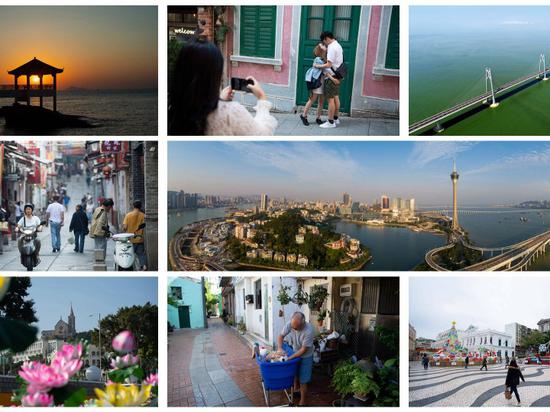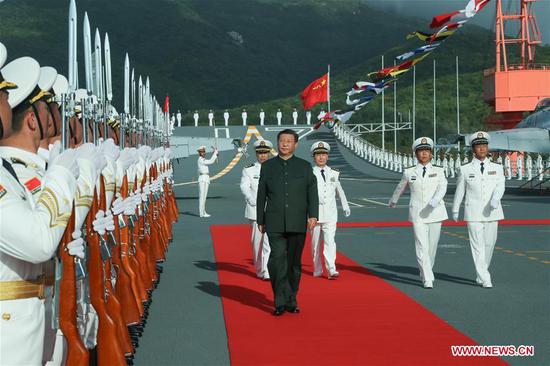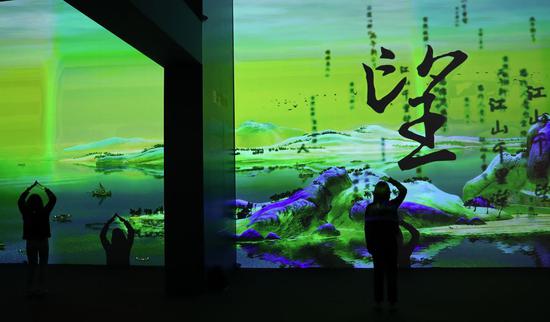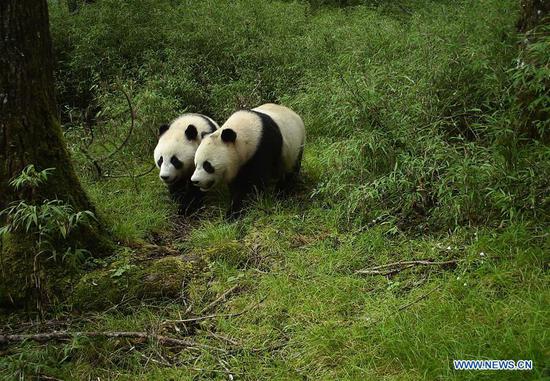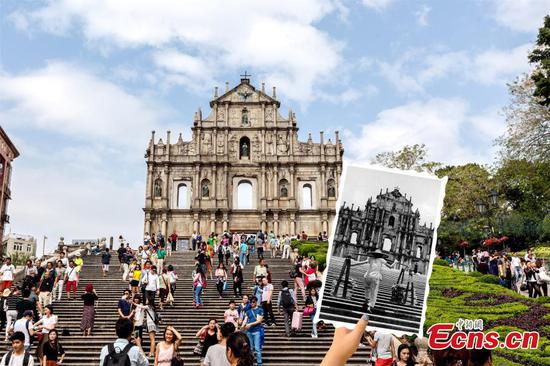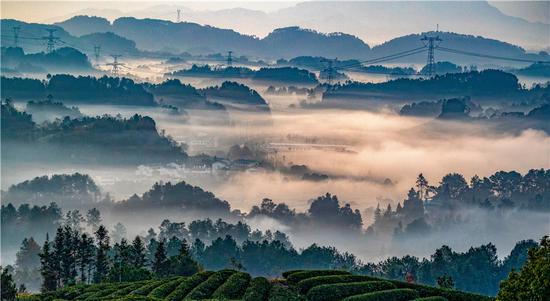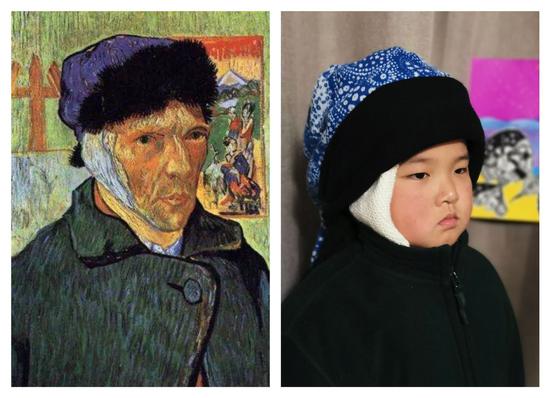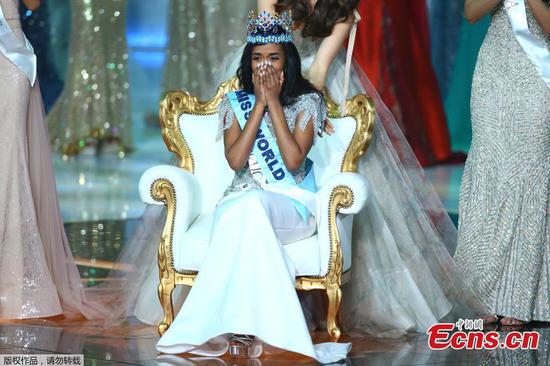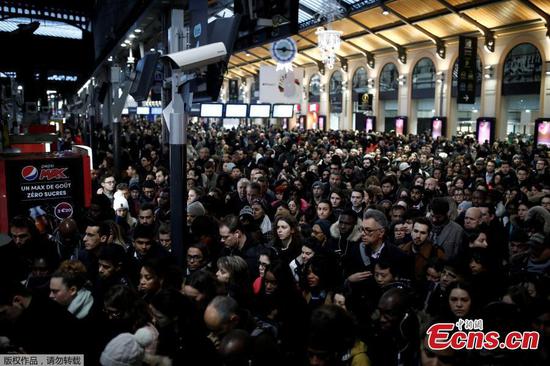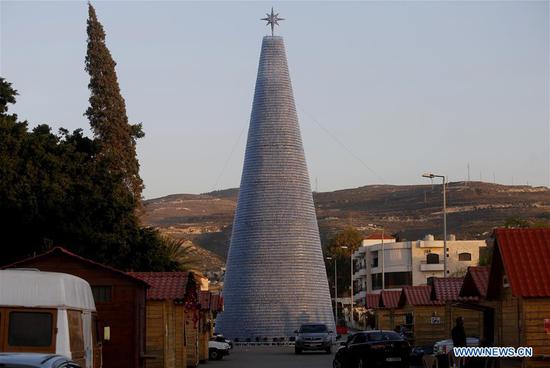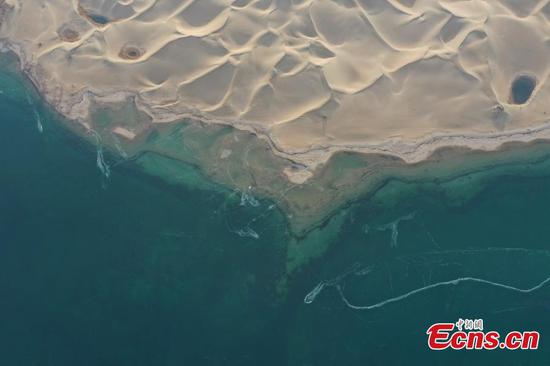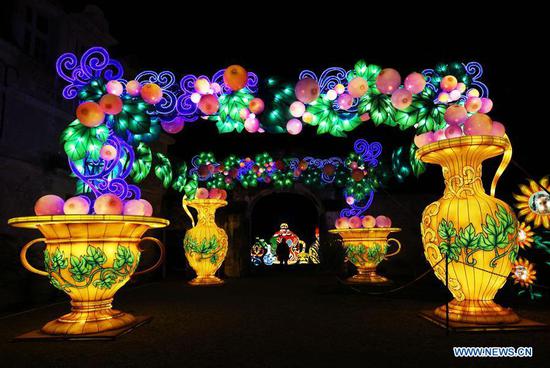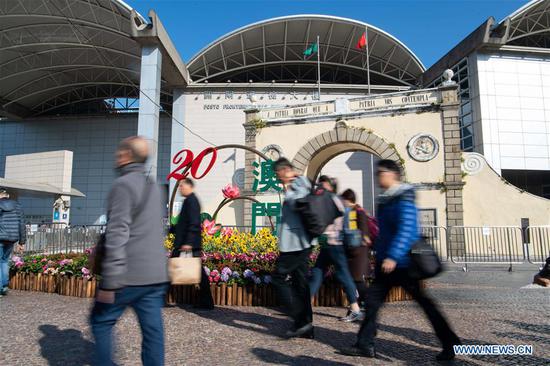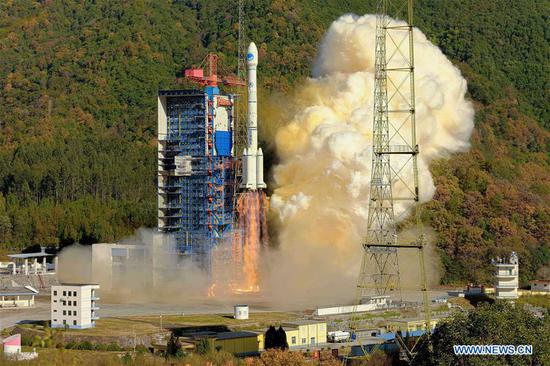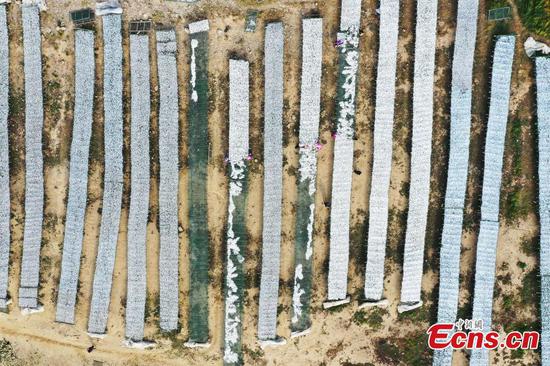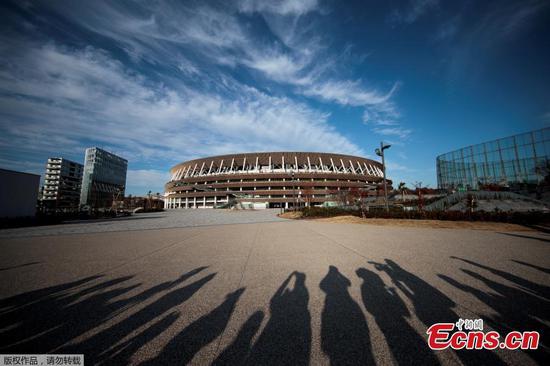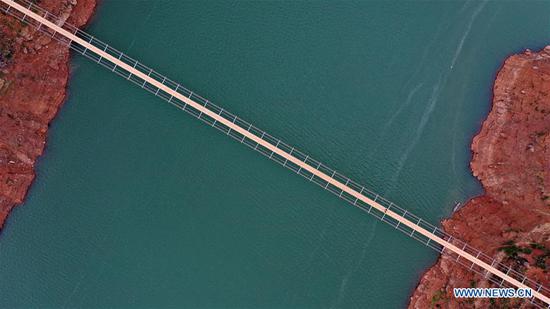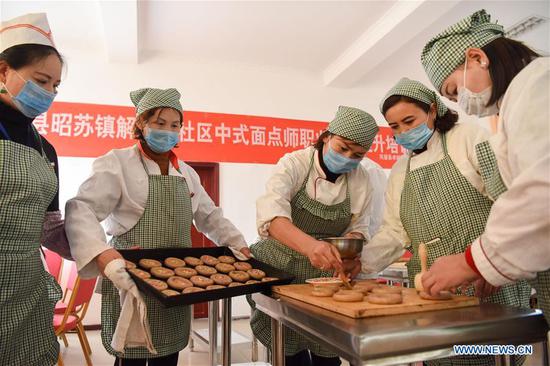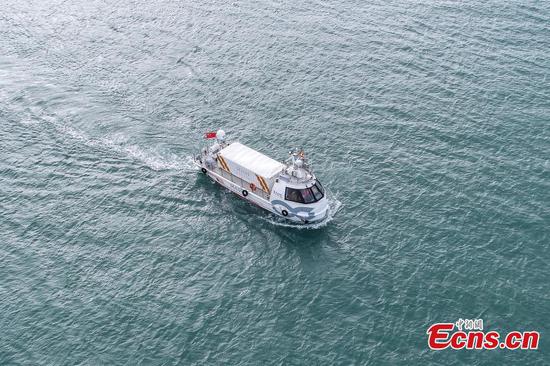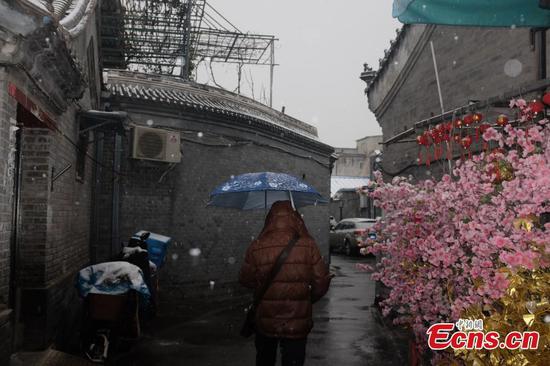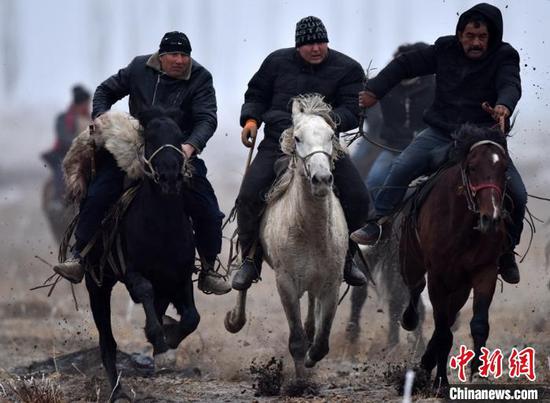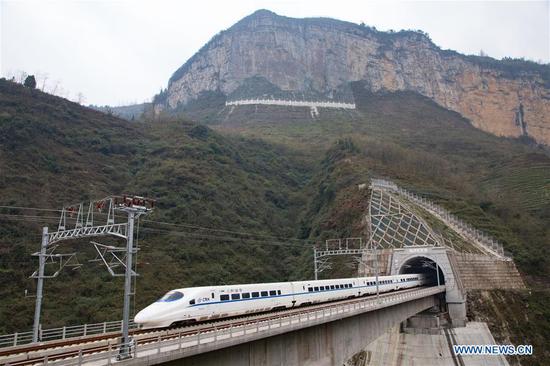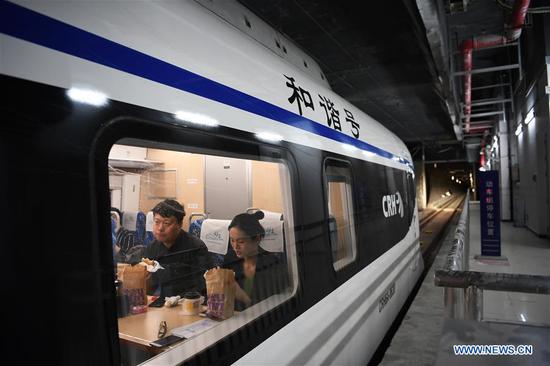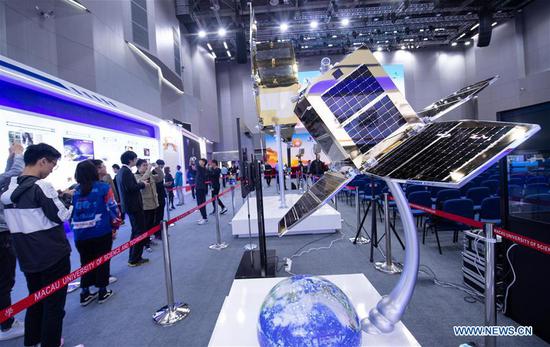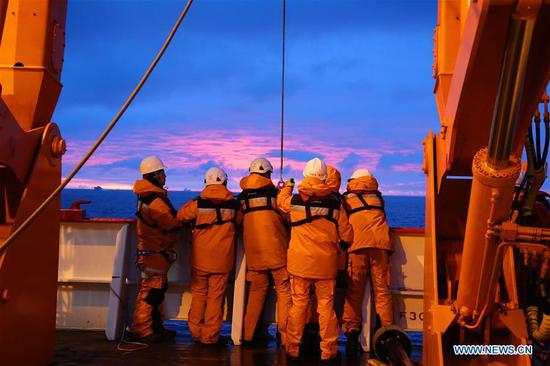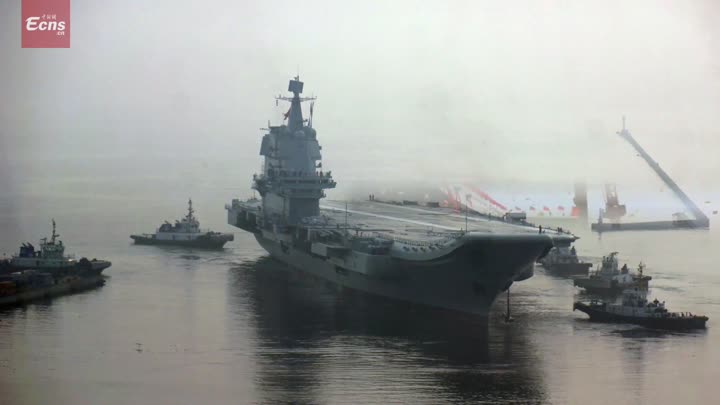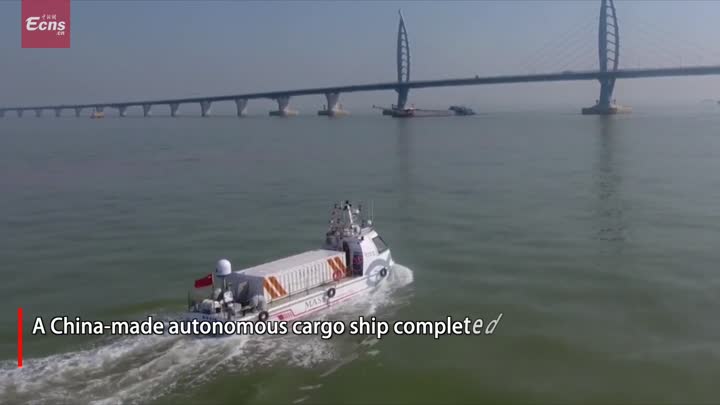
People enjoy a light show near the Ruins of St. Paul's Cathedral during the Macao Light Festival in the Macao Special Administrative Region on Monday. The festival started on Dec 1 and runs through the end of this month, celebrating the 20th anniversary of Macao's return to China. (FENG YONGBIN/CHINA DAILY)
Prominent corporate, political and diplomatic figures from Britain and China have called for efforts to end violence in Hong Kong, and ensure the Asian financial hub is as calm and stable as the neighboring Macao.
They underlined the importance of fully translating into action "one country, two systems" in both Hong Kong and Macao while they were addressing a dinner reception held at the Chinese embassy in London on Monday, marking the 20th anniversary of Macao's return to China in 1999.
Sir Gerry Grimstone, chairman of insurance company Heng An Standard Life, recalled at the reception that he was present at the handover of Hong Kong to China in 1997, and "it was an extraordinarily significant moment that was the precursor to the Macao handover two years later".
The veteran UK financial business leader, who once also led Barclays Bank, said "one country, two systems" is "a truly imaginative concept" conceived by late Chinese leader Deng Xiaoping and enshrined in China's constitution and Hong Kong's Basic Law.
He warned that "the social problems that Hong Kong has faced over the last six months are destroying the credibility of Hong Kong".
"Some external people do not understand that their interventions are only making matters worse," he said.
Grimstone said that violence in Hong Kong "is utterly unacceptable", and he asked: "How would British police respond if petrol bombs were thrown at them?"
He said, "Hong Kong people should ask themselves a question: What is Hong Kong without China?"
"The changes that are happening in the Greater Bay Area are profound, and I see Macao taking full advantage of them," he added.
He also said, "That is impossible without Hong Kong being part of the China Miracle. That is the basis on which British and other international firms have invested there."
"I hope and pray that normal life will return to Hong Kong and that, as in Macao, people can again go about their daily lives again without fear and worry," he added.
Chinese Ambassador to the United Kingdom Liu Xiaoming urged joint efforts to remain committed to "one country, two systems", support Macao in integrating with the overall development of China and stand together against interference by external forces.
"The success of Macao is the success of the principle of non-interference. In the interest of enduring prosperity and stability in Macao, China and Portugal should remain committed to this principle," he said.
Liu said he "cannot help but feel deep regret" at what is happening in Hong Kong, noting that some Western officials and legislators have interfered blatantly over the past six months in Hong Kong affairs, which are internal affairs of China.
"Macao is a beacon for safeguarding the principle of non-interference. We hope it will light up the path forward for Hong Kong," he said.
Christine Lee, a leading Chinese lawyer practicing in the UK and chairwoman of British Chinese Project, said the principle of "one country, two systems" have been applied to and have existed in both Hong Kong and Macao, the two special administrative regions.
"However, in recent time, these two regions, which are traveling through similar paths, appear to have gone down different routes," she said.
She said that many British Chinese have told her how concerned they are and asked her "what is happening in Hong Kong".
Lee said there is a feeling among many British Chinese that "much of the Western coverage of Hong Kong has failed to explain the exact true picture".
"The successful practice of the Basic Law of Macao (SAR) has fully proved that upholding the principle of 'one country' and making good use of 'two systems' have been fundamental to its growth and improvement," she said.










